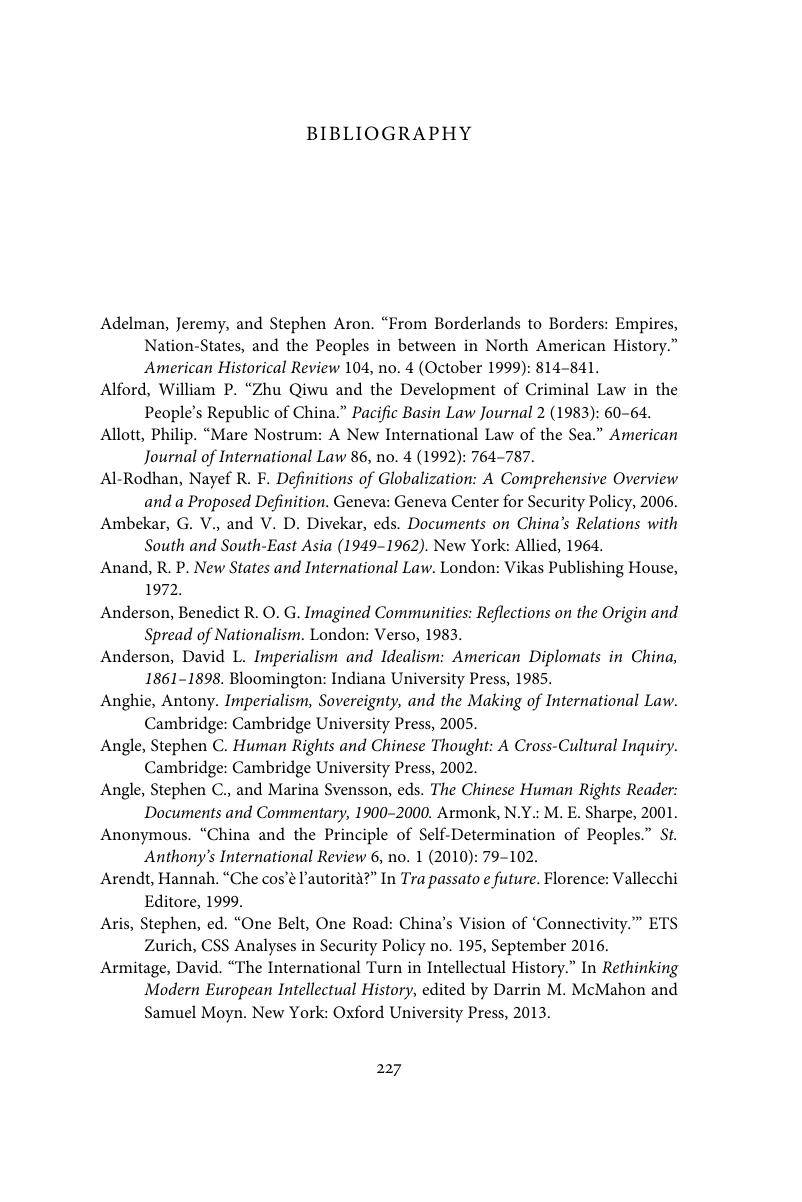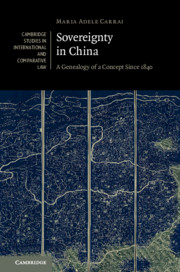Book contents
- Sovereignty in China
- Cambridge Studies in International and Comparative Law: 141
- Sovereignty in China
- Copyright page
- Dedication
- Contents
- Figures
- Acknowledgments
- Introduction
- 1 International Law and the Sinocentric Ritual System
- 2 Secularizing a Sacred Empire
- 3 China’s Struggle for Survival and the New Darwinist Conception of International Society (1895–1911)
- 4 China Rejoining the World and Its Fictional Sovereignty, 1912–1949
- 5 From Proletarian Revolution to Peaceful Coexistence
- 6 Historical Legacies, Globalization, and Chinese Sovereignty since 1989
- Conclusion
- Bibliography
- Index
- Cambridge Studies in International and Comparative Law
- References
Bibliography
Published online by Cambridge University Press: 26 July 2019
- Sovereignty in China
- Cambridge Studies in International and Comparative Law: 141
- Sovereignty in China
- Copyright page
- Dedication
- Contents
- Figures
- Acknowledgments
- Introduction
- 1 International Law and the Sinocentric Ritual System
- 2 Secularizing a Sacred Empire
- 3 China’s Struggle for Survival and the New Darwinist Conception of International Society (1895–1911)
- 4 China Rejoining the World and Its Fictional Sovereignty, 1912–1949
- 5 From Proletarian Revolution to Peaceful Coexistence
- 6 Historical Legacies, Globalization, and Chinese Sovereignty since 1989
- Conclusion
- Bibliography
- Index
- Cambridge Studies in International and Comparative Law
- References
Summary

- Type
- Chapter
- Information
- Sovereignty in ChinaA Genealogy of a Concept since 1840, pp. 227 - 263Publisher: Cambridge University PressPrint publication year: 2019



